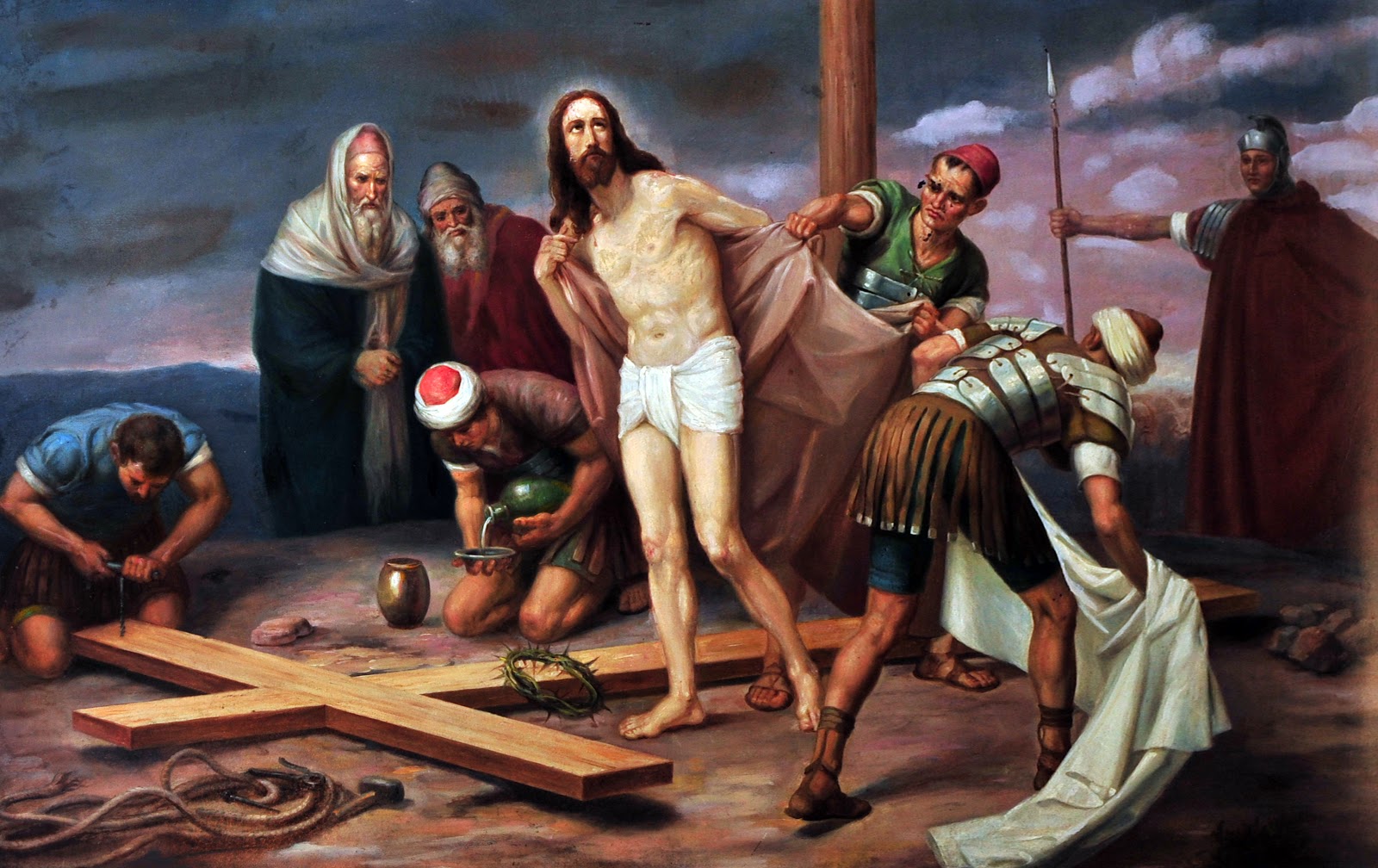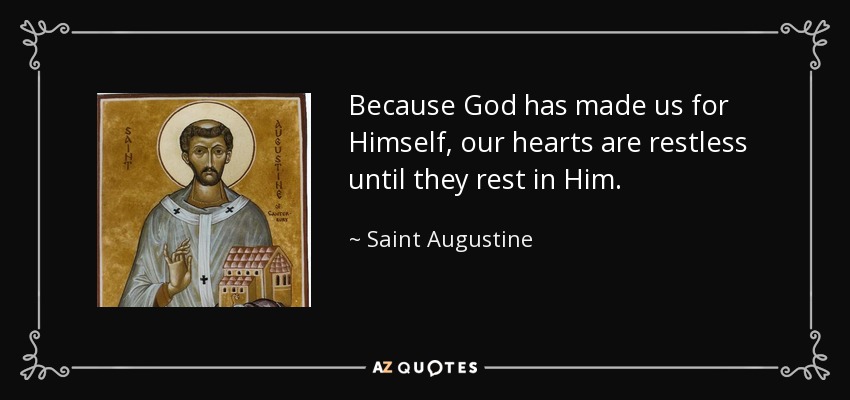Turn the other cheek means turn the other cheek.
Is means is, turn the other cheek means turn the other cheek, etc. The thing about Jesus and his words is that we all grasp them until we get too smart. Then we get to thinking that the words of Jesus Christ can't possibly be understood, they are too multi-leveled, after all. There are tons of ancient near eastern customs, practices, and so on that help to illustrate exactly why when someone strikes you, you should hit them back. And we tend to fall into the same patterns that our first mother did when confronted with the Devil, that monstrous demon from the dim mists of time. For when the Devil spoke to Eve about the forbidden fruit that she craved, he began by saying
"Hath God really said....?"
The deception began there, by attempting to get Eve to question what God had said. God had told our first parents not to consume the fruit of the tree of the knowledge of good and evil, but Eve's deception began by asking what did God mean by that. Now note that the command of God in the garden wasn't hard to understand. "Don't eat that, it's bad for you" is a command so simple that we could give to children, and in fact, frequently do. Don't eat that, don't touch that, don't do that, simple things that we tell children, and we expect them to listen to and to understand. And they by and large do, until they become reasoned enough to begin to question your commands, and to ask what it is that you really meant by what you said. And it is far easier for us to say that if we mean what we tell our children, then perhaps God means what he says when he says it to us.
The best person to listen to in relation to this issue is, of course, Dietrich Bonhoeffer himself, that most wonderful of pastors who put himself in harm's way, who stood up to Hitler, who sacrificed himself and all that he had for the benefit of those around him. And when he talks about cheap grace, we should really take him seriously, given that he is definitely prepared to put his money where his mouth is. Which he absolutely did. At any rate, when he discusses these words from Christ, and our modern understanding of them, he says this much.
"We in our sophistry differ altogether from the hearers of Jesus' word of whom the Bible speaks. If Jesus said to someone 'leave all else behind and follow me; resign your profession, quit your family, your people, and the home of your fathers.' then he knew that to this call there was only one answer - the answer of single-minded obedience, and that it is only to this obedience that the promise of fellowship with Jesus is given. But we should probably argue thus: 'Of course we are meant to take the call of Jesus with absolute seriousness, but after all the true way of obedience would be to continue all the more in our present occupations, to say with our families and to serve him there in a spirit of true inward detachment.' If Jesus challenged us with the command 'Get out of it,' we should take him to mean 'stay where you are but cultivate that inward detachment.' Again, if he were to say to us 'be not anxious,' we should take him to mean 'Of course it is not wrong for us to be anxious, we must work and provide for ourselves and our dependents. If we did not we should be shirking our responsibilities. But all the time we ought to be inwardly free from anxiety.' Perhaps Jesus would say to us 'Whosoever smiteth thee on the right cheek, turn to him to other also,' We should then suppose him to mean 'The way to really love your enemy is to fight him hard and hit him back.' Jesus might say 'Seek ye first the kingdom of God,' and we should interpret it thus, 'Of course we should have to seek all sorts of other things first; how could we otherwise exist? What he really means is the final preparedness to stake all on the kingdom of God.' All along the line, we are trying to evade the obligation of single-minded, literal obedience."
-Dietrich Bonhoeffer, 'the cost of discipleship,' Grace and obedience.
These words of Bonhoeffer are humbling, but only because they point back to the words of Christ. And the funny part of it all is that we like to pretend that there must be another interpretation to these words from Christ, he must have meant subverting power structures, or being metaphysically nonviolent, or Christian anarchism, or blahbitty blah, and bloobitty blooh. In other words, Jesus of Nazareth meant anything except what he said.
But if we believe that, that's not Christianity anymore, folks. That's another kind of religion in which you are trying to justify yourself. And if you know your scriptures, you will know that every time someone tries to justify themselves, Jesus shuts them down too. As Christians, we have to understand that the Devil hasn't changed how he operates, you know. He continues to operate the same way he always has, by whispering to you and I 'Hath God really said?' designed to have us change the word of God to fit what we are already doing. And look, I know why the temptation for the sophistry is there, I really do. I know why it's there because when I look at the word of God from this Gospel passage, I don't want it to apply to me either. I don't want to lend to anyone who asks, I don't want to turn the other cheek, I want Jesus to tell me to look out for number one. But when I consider the Gospel of Christ, I come face to face with a realization, which is that I find in these words commands that I don't want to adhere to in relation to other people, but commands I want people to adhere to in relation to me. It's not as though I would look at these words and say that they are bad for humans to follow, in fact quite the opposite. I want everyone else to do them all the time! What a great world that would be! But I don't want to follow them myself. And nor does anyone else. And there's the rub.
We can all look at this passage and agree that these things should be done, no problem. But the difficulty comes in understanding that these aren't just rules for other people, they're rules for us too. That's the issue more than anything else you know. And the trouble overall is the fact that these things are good and right and should be obeyed by everyone, yet we all tend to believe that they should only apply to other people, instead of us. That's how slavery works, you know, because we can believe that us owning other people is okay, but other people owning us would be a great moral ill. That's how theft works, that if you steal from Metallica, that's fine, but someone stealing your Metallica albums from you would be a crime. You have to understand that these things aren't different. They only seem to be different because they're happening to you.
Hopefully now we can get to some kind of clarity here, which is not that the law of God is bad for people, but only that it's hard for us. It's not that we think that it is unreasonable, on the contrary we expect the people that we see around us to follow it, and we act as though they will. We expect people to forgive us, to respect our property, to give without asking for anything in return, that kind of thing, but we remain perpetually surprised when almost everyone seems to act as though they are the exception to the rule. But none of us are. This is why the scriptures tell us that all have sinned, and fallen short of the glory of God: because none of us are actually all that good at keeping up with these commands. And this is precisely why the perfection of Jesus Christ takes centre stage, you know. It does so because of what Jesus does. He doesn't come to abolish the law, nor to make it easier. He comes to fulfill it, and that's different. So far, we've been talking about how we can tell that the law is good for other people to follow, and Jesus just goes one step further - he knows that the law is good for everyone to follow. But unlike the rest of us, he doesn't stop there; he actually fulfills the law, lives it out perfectly. He does what should be done, and we can see him living it out in the pages of the scriptures, Jesus prepared to live out what he advises us to do himself.
This passage from the Gospels, where Jesus reminds you of what is expected by us from other people, he is also giving us an idea of the lengths to which he will go to fulfill that law for us. Do these things sound difficult to the point of impossibility for us? Sure they do! Are they the right thing to do? They sure are! And that's why they exist within the wheelhouse of the one and only perfect human being to have ever lived, who will take on these things, and accomplish them fully. With examples.
For instance, when Jesus says to love your enemies and do good to those who hate you, he lives it out in this moment:
When Jesus says to turn the other cheek when someone strikes you, he lives it out here:
When Jesus says that if someone takes your cloak, do not withhold your tunic either, he puts that into practice in his own life:
All I want you to understand is that when Jesus speaks about what good and evil are, he's not purposefully exaggerating, nor is he talking about some strange middle eastern custom that secretly means to do whatever you want to do in the first place. He is telling you in language so plain and straightforward that children can understand it. Don't want to do it? I understand that, because nor do I . But Jesus did not come to abolish the standard, but to fulfill it. That's his role, and it's extremely serious. He doesn't come to make a hard rule easier to follow, he comes to keep the rule, and to offer up his obedience to us. We are people who live in the shadow of the cross, where the perfect penitent made the perfect sacrifice. The rules that we think are important for others to follow are still there and still remain. We now get to live in a world where the perfect life was lived on our behalf. We acknowledge that there is a good standard, we repent that we do not live up to it, and we give thanks that the perfect life was lived for us, so that when God looks upon us, he sees only Christ's righteousness.








